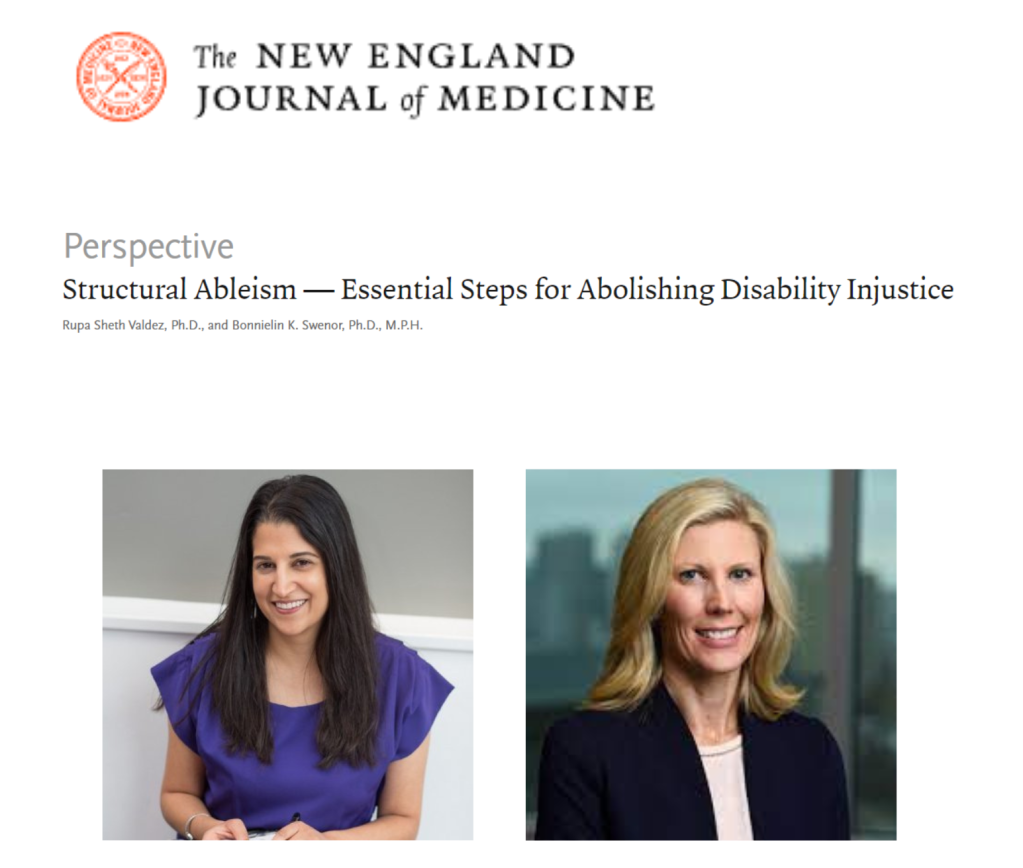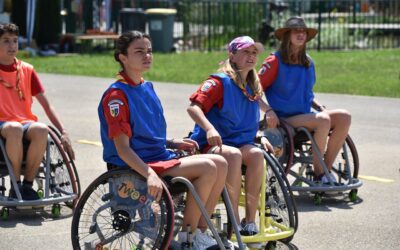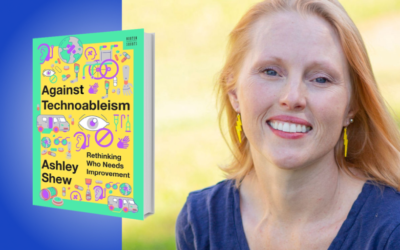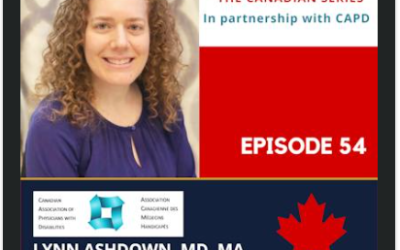Written by admin
This commentary concerns structural ableism and contrasts this with ableism. The authors refer to ableism as a bias against and the devaluing of people with disabilities. They go on to underline that ablest beliefs are rooted in perspectives that characterize disability as abnormal, an individual problem requiring treatment or cure, rather than perspectives that acknowledge disability as a normal part of human diversity with the experience shaped by built, social, political, and economic environments.

Valdez, R.S. and B.K. Swenor, Structural Ableism – Essential Steps for Abolishing Disability Injustice. N Engl J Med, 2023. 388(20): p. 1827-1829.
In contrast, structural ableism is a complex system of hierarchical and discriminatory processes, policies, and institutions that privilege able-bodied people, and fail to represent or meaningfully include disabled persons’ voices. These processes, policies, and institutions are grounded in a network of ablest beliefs and practices that maintain and reproduce unequal outcomes for disabled people and benefit able-bodied people.
Because of structural ableism, people with disabilities often experience inequities in healthcare quality and access and affect health outcomes. The impacts of structural ableism are manifested by disproportionate higher rates of depression, anxiety, diabetes, obesity, and heart disease among people with disabilities. These inequalities have been attributed to inadequate professional training and as well as to physical, attitudinal, and communication barriers between healthcare providers and people with disabilities.
Dismantling structural ableism requires research that goes beyond the qualitative and makes use of complex multivariate models. This research requires that there are meaningful metrics, beyond data from personal experiences, such as features of the built environment and documentation of health care pathways for people with disability.
The motto “Nothing about us without us” requires removing barriers that prevent people with disabilities from entering the sciences and the health professions that produce research that can lead to the dismantling of structural ableism.
Annotated by Nancy Mayo
Related Articles
Related
Here are some dos and don’ts to help tackle ableism
Throughout the course of our careers and lived experiences, we have seen the daily ableism people living with disabilities contend with. As professors of education and disability ethics, we have put together the following list of dos and don’ts.
Against Technoableism: Rethinking Who Needs Improvement
If you only read one scholarly work on ableism, read this book. Ashley Shew shares with us her voyage through multiple pathways from able to disabled. She chronicles her unique personal experience, situates this within a strong academic framework, and provides...
The story of Dr. Lynn Ashdown
In this episode, we are joined by Dr. Lynn Ashdown, a patient experience expert who advocates for the inclusion of patients in all levels of healthcare. Dr. Ashdown obtained her medical degree from The University of Ottawa and began her residency in family medicine...



